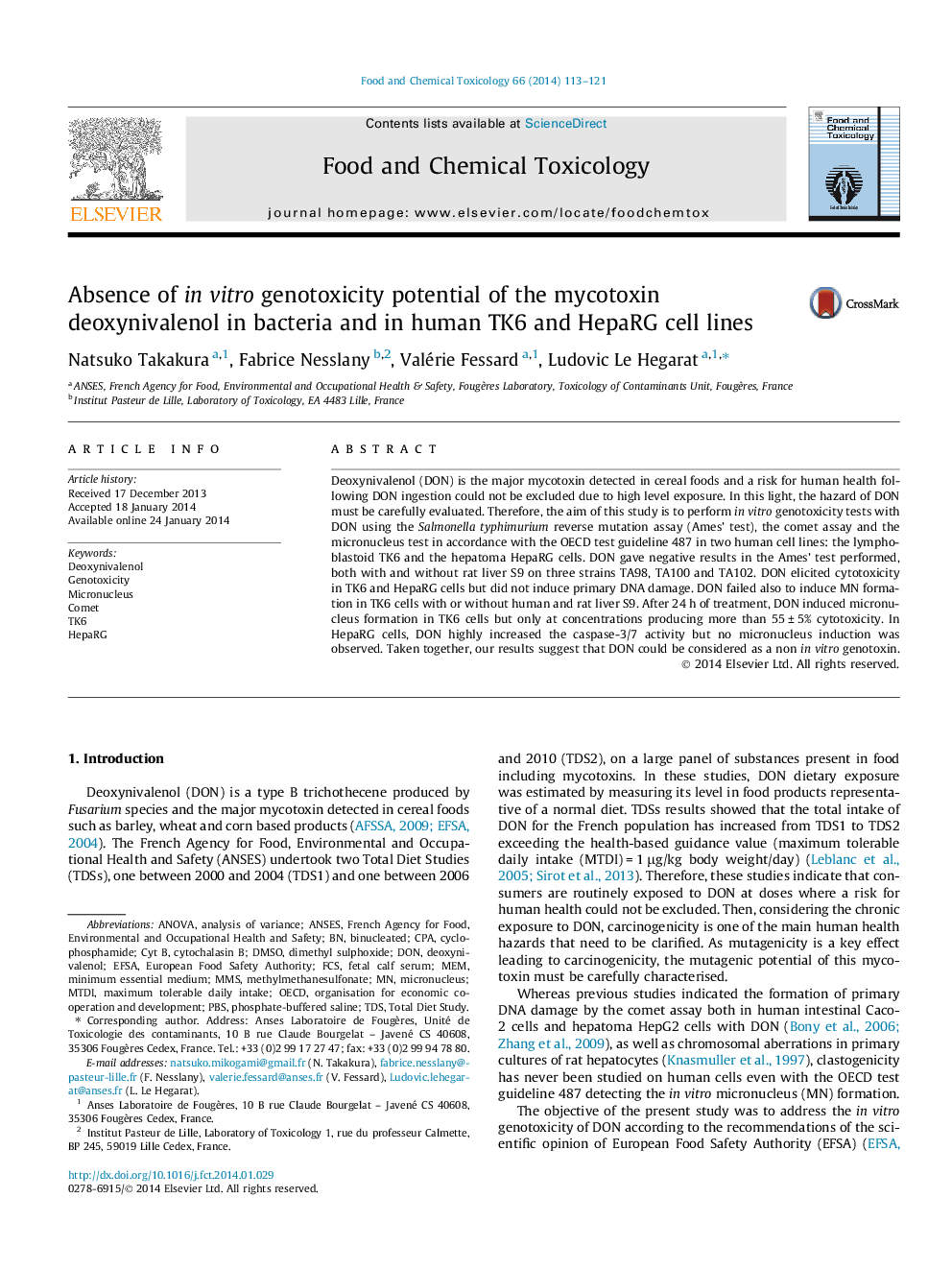| Article ID | Journal | Published Year | Pages | File Type |
|---|---|---|---|---|
| 5850726 | Food and Chemical Toxicology | 2014 | 9 Pages |
Abstract
Deoxynivalenol (DON) is the major mycotoxin detected in cereal foods and a risk for human health following DON ingestion could not be excluded due to high level exposure. In this light, the hazard of DON must be carefully evaluated. Therefore, the aim of this study is to perform in vitro genotoxicity tests with DON using the Salmonella typhimurium reverse mutation assay (Ames' test), the comet assay and the micronucleus test in accordance with the OECD test guideline 487 in two human cell lines: the lymphoblastoid TK6 and the hepatoma HepaRG cells. DON gave negative results in the Ames' test performed, both with and without rat liver S9 on three strains TA98, TA100 and TA102. DON elicited cytotoxicity in TK6 and HepaRG cells but did not induce primary DNA damage. DON failed also to induce MN formation in TK6 cells with or without human and rat liver S9. After 24 h of treatment, DON induced micronucleus formation in TK6 cells but only at concentrations producing more than 55 ± 5% cytotoxicity. In HepaRG cells, DON highly increased the caspase-3/7 activity but no micronucleus induction was observed. Taken together, our results suggest that DON could be considered as a non in vitro genotoxin.
Keywords
TK6PBSbinucleatedCytochalasin BTDSCPAmethylmethanesulfonateHepaRGMMSFCSDeoxynivalenolEFSAOECDDMSOEuropean Food Safety Authorityanalysis of varianceANOVAminimum essential mediumANSEScometDONdimethyl sulphoxideOrganisation for Economic Co-operation and Developmentfetal calf serumGenotoxicitycyt bCyclophosphamideMEMPhosphate-buffered salineTotal diet studyMicronucleus
Related Topics
Life Sciences
Agricultural and Biological Sciences
Food Science
Authors
Natsuko Takakura, Fabrice Nesslany, Valérie Fessard, Ludovic Le Hegarat,
